Farmer And Quality-First: Approach Fuelling CEAT’S International Dreams
- By Sharad Matade and Gaurav Nandi
- August 11, 2025
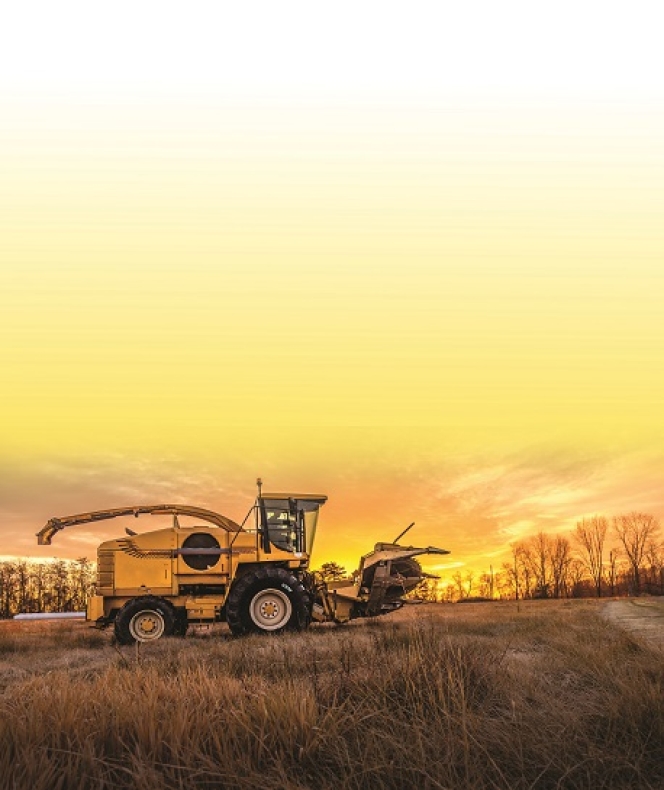
As global demand for high-performance and sustainable speciality tyres rises, Indian manufacturers are stepping up, and CEAT is not behind. With a bold ambition to derive a quarter of its revenue from international markets, the company is leveraging deep farmer insights, advanced research and development capabilities and a quality-first mindset to penetrate competitive regions like Europe and North America. Its growing presence among global OEMs, automation-led manufacturing and entry into OTR segments signal a strategic evolution aimed at long-term global leadership.
The international tyre markets are getting ripe for Indian tyre makers. Every major tyre maker in the country is vying for a piece of share in European and American markets. While Europe has been predominantly the go-to market for Indian brands, recent expansions have led giants like CEAT explore speciality tyre markets in North and South America too. And the reason for a successful ride is its farmer and quality-first approach.
Speaking exclusively to Tyre Trends, Amit Tolani, Chief Executive at CEAT Specialty, said, “We’re aiming for 25 percent of our revenue to come from international markets. Currently, our key markets for exports include Europe, North America and Brazil in South America. Apart from these, South Africa and Australia round out our top five regions for off-highway tyres (OHT).”
CEAT has been steadily investing in capacity to ensure that it can meet demand across volumes and variety as it’s essential to have a complete product portfolio and sufficient production capacity to cater to these markets effectively.
“Our growth strategy for OHT revolves around completing the range, beyond agriculture and entering product white spaces where we have minimal offerings. This will help us deepen our presence in existing markets, enter new ones and diversify our portfolio further,” added Tolani.
However, the executive acknowledged that capturing the OHT tyre market in Europe is not an easy task considering its high competition. “In OHT, the first priority is to have a full-range product offering. We decided early on that we must become a one-stop shop. If our distributor or partner can’t find all their SKUs with us, they’ll look elsewhere. Today, we cover 70–80 percent of the SKU
range needed across major geographies. The remaining long tail is large in number and we’re actively working to close those gaps,” explained Tolani.
Differentiation is the next piece. CEAT’s quality-first approach has enabled it to enter international as well as local OEMs. Validating its tyres through OEMs is a rigorous process, but it gives customers and farmers confidence in product quality.
Europe is currently the larger market for the company as a cluster, but it’s growing rapidly in North America, especially in Canada, where it supplies to many OEMs and is present in the replacement market as well. In the US, it follows a multi-distribution strategy with good channel coverage.
EVOLVING DEMANDS
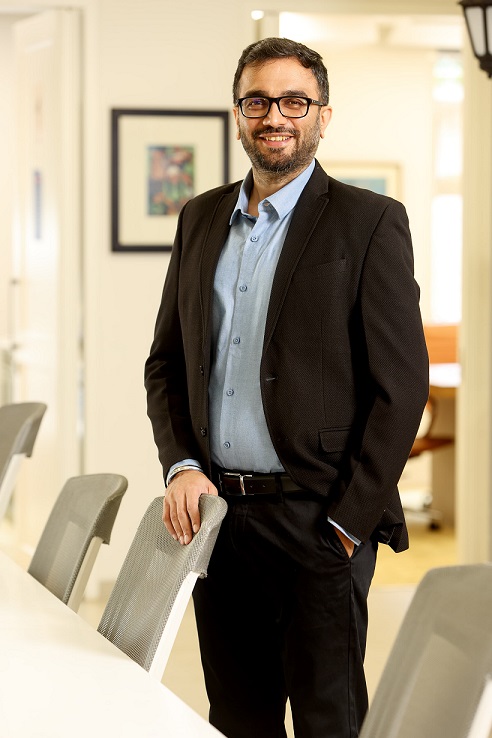 Tolani noted that there is an increasing demand for technologically advanced tyres in these markets due to changes in farm machinery. And to satiate it, CEAT offers increased flexion (IF) and very high flexion (VF) tyres. These tyres flex more, improving soil contact and resulting in higher farm productivity. Both technologies are designed to allow tyres to carry heavier loads at lower inflation pressures. VF offers greater flexibility than IF, translating into better soil protection and improved traction.
Tolani noted that there is an increasing demand for technologically advanced tyres in these markets due to changes in farm machinery. And to satiate it, CEAT offers increased flexion (IF) and very high flexion (VF) tyres. These tyres flex more, improving soil contact and resulting in higher farm productivity. Both technologies are designed to allow tyres to carry heavier loads at lower inflation pressures. VF offers greater flexibility than IF, translating into better soil protection and improved traction.
Citing an example of working closely with OEMs, Tolani said, “Farms in Brazil are often located on sloped terrain. One OEM there asked for tyres that wouldn’t skid on gradients and we developed custom sizes and tread designs to meet this specific need. We work closely with OEMs and end users to understand such requirements and develop tailored solutions. This farmer-first approach underpins our research and product development.”
The executive also noted a trend of de-premiumisation in agricultural tyres as farmers are moving away from traditional premium brands and leaning towards quality players like CEAT, especially as the performance gap has narrowed significantly.
“We now deliver nearly comparable performance at more accessible price points. So our value proposition, which is quality-first products at competitive prices, resonates well, particularly in uncertain market conditions with rising tariffs and volatility. Even in slowdown years, Indian brands like ours have grown in global markets. We believe this trend will continue and CEAT is well-positioned to benefit from it,” averred a confident Tolani.
The company’s penetration in these markets starts with an OE-first approach, wherein farmers see the tyres on OEM-fitted equipment, which builds trust in the brand. This naturally drives traction in the replacement market.
The tyre maker is also expanding country-wise and region-wise, ensuring it has a strong on-ground teams across Europe, North America and South America to deepen the market presence.
AUTOMATION AND SHARE
The world of tyre manufacturing is unequivocally leaning towards automation for reducing downtime and increasing production efficiency. Riding on these two pillars, global giants have reorganised internal processes, and Indian tyre makers, including CEAT, are not shy of such advancements.
“Our Ambernath plant has a high level of automation. Unlike traditional OHT plants that rely on heavy manual labour, our facility is run by highly trained women operators, which is proof of how advanced and safe our systems are. With just the push of a button, they can produce high-performance tyres,” said the executive.
He added, “Our plant is unique in that it supports highly flexible production. We can manufacture single units based on customer demand. That’s rare in this industry and is a significant competitive edge in meeting varied and low-volume speciality requirements.”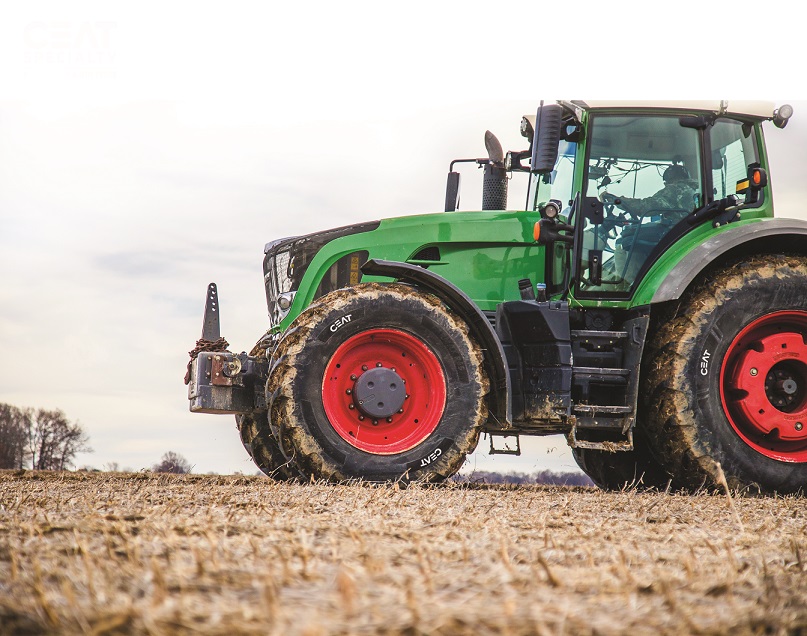
CEAT has dedicated vendor capacity for tyre moulds too. Since it serves a wide range of OEMs globally, turnaround time is critical. It works with trusted partners in India and abroad, who are aligned with its well-structured annual and monthly planning cycles. For complex or urgent requirements, it co-develops solutions with these partners.
Currently, CEAT has a combined manufacturing capacity of approximately 350 tonnes per day in the speciality segment.
Commenting on current market challenges in the segment, Tolani explained that serving OEMs requires agility as their specifications change quickly, especially if a particular vehicle model needs to be revised or discontinued. CEAT’s ability to handle smaller lot sizes and fast turnaround helps it stay ahead.
In the aftermarket, its biggest challenge is awareness. “Farmers in Eastern India, where rice is cultivated in flooded fields, need different tyres than those used in drier regions. We’ve developed tyres specifically for rice puddling and now the task is to educate the farmer on why this new design performs better than conventional options. We conduct field meets and demos to bridge that knowledge gap,” noted the executive.
He also divulged that selling speciality tyres is a different ballgame compared to passenger or commercial tyres. It’s highly consultative and requires deep technical knowledge. Some of CEAT’s international sales professionals have over 30 years of experience in the segment.
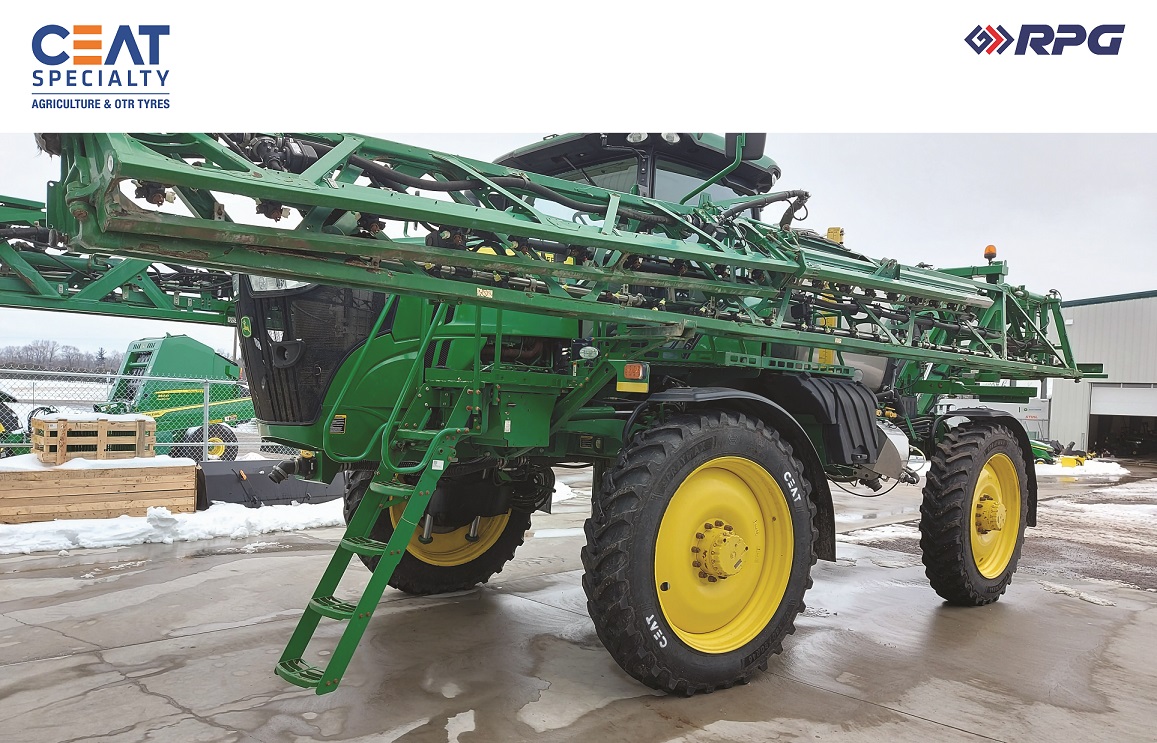 “We have a healthy mix of seasoned professionals, mid-career talent and freshers. We also deploy product specialists in key markets like Europe and North America, who train and support the front-line sales teams. Our research and development team are closely involved in this process as well,” contended Tolani.
“We have a healthy mix of seasoned professionals, mid-career talent and freshers. We also deploy product specialists in key markets like Europe and North America, who train and support the front-line sales teams. Our research and development team are closely involved in this process as well,” contended Tolani.
EXPANSION PLANS
Currently, CEAT’s revenue split in the OHT segment is around 60 percent domestic and 40 percent international. It aims to increase the international share in the near future.
“We’re now expanding into construction and mining (OTR) tyres. This segment accounts for nearly 70 percent of the OHT market, while agriculture makes up the remaining 30 percent. The next big step for us is manufacturing all-steel radial OTR tyres,” said Tolani.
He added, “We’re upgrading our Ambernath plant to start production of these tyres. Testing will begin this year, followed by phased market entry. This expansion is critical not only to enter a new category but to become a one-stop shop for our channel partners.”
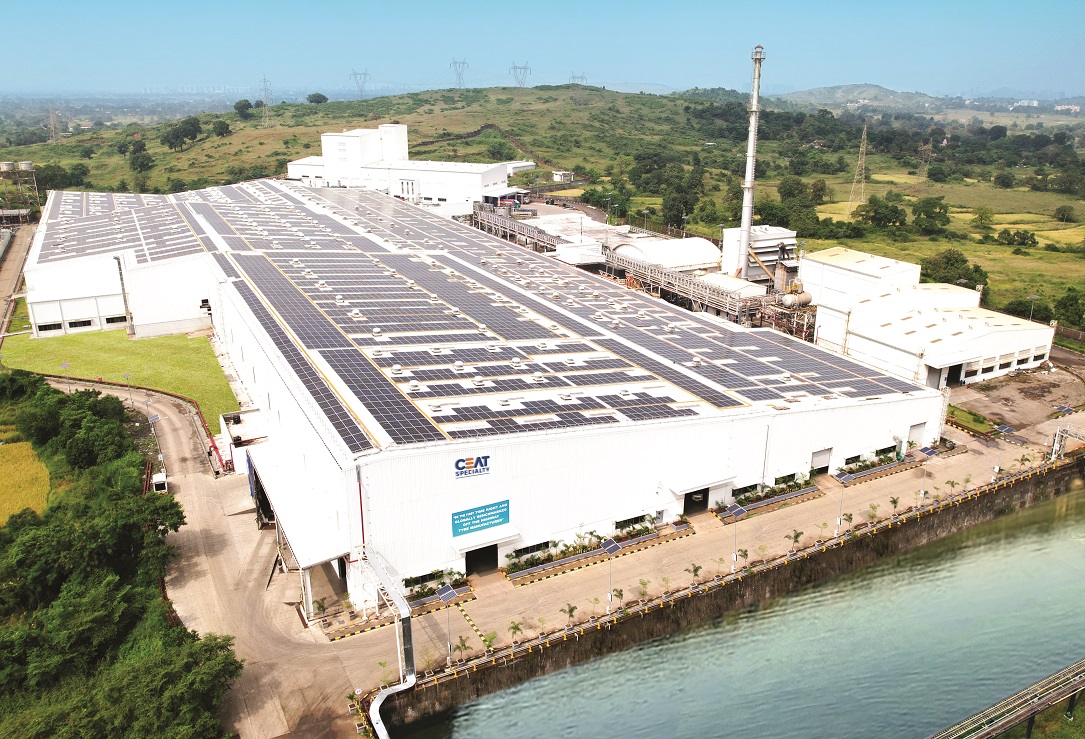 Sharing the reasons for entering the segment, Tolani said that being present across categories gives the company more share of wallet and with India’s ongoing infrastructure boom, there’s significant domestic demand as well. So, while exports remain a priority, the Indian market for OTR steel is also ripe with opportunity.
Sharing the reasons for entering the segment, Tolani said that being present across categories gives the company more share of wallet and with India’s ongoing infrastructure boom, there’s significant domestic demand as well. So, while exports remain a priority, the Indian market for OTR steel is also ripe with opportunity.
Over the next five years, CEAT aims to establish itself as a significant global player in agriculture, OTR and track segments. “We plan to increase our international footprint and continue building on our philosophy of innovation, speed and customer-centricity. With the planned acquisition of Camso, we will have access to global customers and product portfolio of construction OTR and tracks, thus accelerating our white space coverage,” quipped Tolani.
He also noted a trend of consolidation within the global tyre sector: “We’ve already seen large global groups acquiring speciality players. Material handling and solid tyres are also part of this trend. The real opportunity lies in how the segment evolves and premiums over time. That’s where differentiation and depth of capability will matter most.”
Backed by farmer insight, technological depth and a nimble, quality-first mindset, CEAT is redefining what it means to be a global Indian tyre brand. With bold moves into OTR and international markets, its speciality tyre journey is only just gaining traction. n
INNOVATIVE SOLUTIONS COMING UP NEXT!
CEAT is investing heavily in research and development for speciality tyres and has also achieved commendable feats. It currently manufactures the world’s largest agricultural tyre by size, claimed Tolani.
“We developed it for an OEM in Canada. We also make the world’s widest sprayer tyre. Developing them required significant engineering. We’re constantly working on new sizes, technologies like VF and IF, custom tread designs and machine-specific applications,” he contended.
The company’s approach to innovative solution is demand-led as it inculcates the needs of OEMs and farmers within the development scene and responds with highly specific, performance-driven innovation. Whether it’s anti-skid designs for Brazilian slopes or sprayer tyres with large footprints, its research and development team is geared towards meeting future agricultural demands.
Moreover, the company has an 80 percent sustainable agricultural tyre made from sustainable materials. It’s currently undergoing testing at Finland and will be officially launched at the upcoming Agritechnica exhibition. This is one of the major innovations the company is excited about.
“We’re also collaborating with our partners to develop intelligent tyres for port applications. These tyres will be equipped with embedded chips that enable real-time tracking of usage, wear patterns and operational hours, transforming them into smart, connected components of port machinery,” divulged Tolani.
In the past, CEAT has partnered with an Israeli start-up to develop cup-wheel and airless tyres. “There’s a lot of innovation happening in this space, especially because downtime is so critical for farmers. We often think of tyre downtime from the perspective of a car or truck owner, but when a farmer’s tractor stops in the middle of a field, it’s a major operational and emotional setback. We’re focused on reducing that risk through smarter and more resilient products,” contended Tolani.
The manufacturer is also seeing a shift in the industry towards electric tractors and machines, which require higher torque and frequent stop-start movement. That means specialised compounds and tyre designs, and it has developed a dedicated range to meet those needs as well.
Commenting on the company’s research and development strength, Tolani explained, “Most of our research and development happens in Mumbai, India, but we also have a strong global setup. We have a design and validation centre in Germany and a satellite design cell in Israel that contributes valuable inputs. In India, our core research and development is centred at our new research and development hub in Ambernath. Additionally, we utilise our research and development facilities in Chennai and Halol for materials, compounding and simulations.”
The executive also thinks that sustainable materials in speciality tyres is not just a trend but a necessity. He acknowledged that sustainable inputs are costly and require significant investment in research and development, but global warming is not a theoretical issue anymore. Consumers, especially in Europe, are becoming far more conscious.
“Sustainable materials in tyres may be expensive today, but with scale and progress, we expect cost normalisation. CEAT is committed to this journey and wants to give customers that choice,” Tolani concluded.
With a sharp focus on performance, precision and sustainability, CEAT is redefining the future of speciality tyres through customer-led innovation. Its global research and development network and strategic collaborations signal a long-term commitment to smarter, greener mobility solutions.
Marangoni Strengthens OTR Team With Two Key Appointments
- By TT News
- January 15, 2026
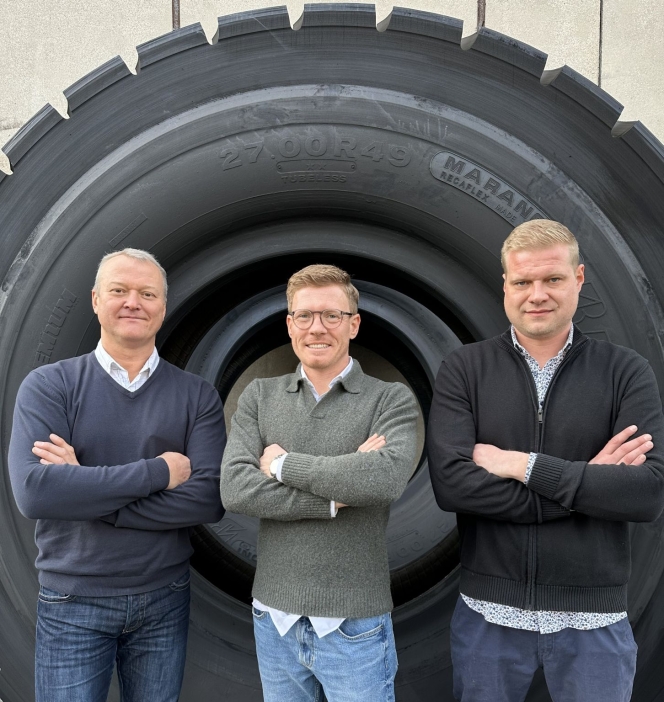
Marangoni has reinforced its OTR division as of January 2026 with the key hires of Eduard Mundt and Dominik Hörmann. Mundt will apply his extensive technical knowledge and industry experience to serve and build partnerships with OTR customers across Southern Germany. Hörmann, an expert in both OTR and TBR segments with specialised retreading knowledge, will oversee operations in Northern, Central and Western Germany, supporting the core OTR business and segments of the TBR market.
This strategic expansion underscores the company’s commitment to deepening its local engagement with both dealers and end users. By enhancing direct customer relationships and fortifying its regional footprint, Marangoni aims to solidify and sustainably grow its standing in the market.
Nokian Tyres Appoints Timo Koponen As New CFO
- By TT News
- January 14, 2026
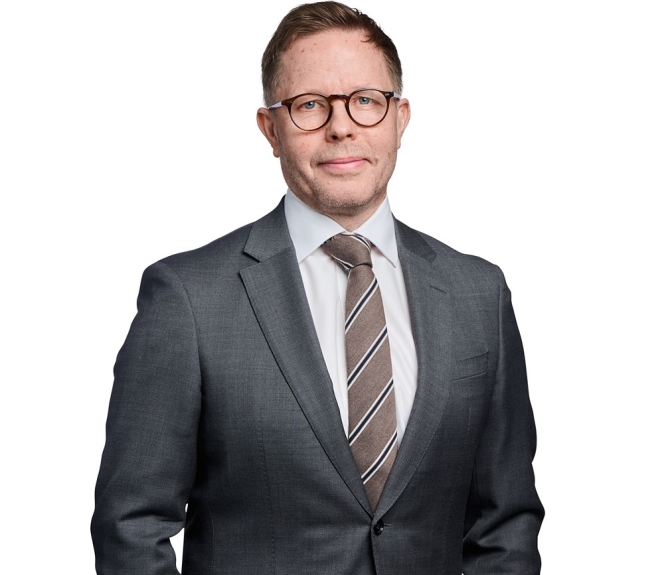
Nokian Tyres has named Timo Koponen as its incoming Chief Financial Officer and a member of the Management team. He is scheduled to assume the role by 15 April 2026 and will report directly to President and CEO Paolo Pompei. The company’s interim CFO, Jari Huuhtanen, who serves as VP of Group Business Control, will continue in that capacity until Koponen officially begins.
Koponen brings extensive financial and executive experience to Nokian Tyres, most recently serving as the CFO and a member of the Leadership Team at Normet, a prominent global provider of mining and tunnelling technology. His professional background includes a series of senior roles in finance and business leadership across several industrial corporations. Before his tenure at Normet, he held significant positions at Lamor Corporation, Wärtsilä, Hackman and Konecranes.
Koponen holds degrees in Master of Science in Economics and Business Administration. His appointment is part of Nokian Tyres' strategic leadership planning, ensuring a structured transition in its financial leadership.
Paolo Pompei, President and CEO, Nokian Tyres, said, “I am pleased to welcome Timo Koponen to Nokian Tyres. His extensive experience in finance and operations within publicly listed companies, combined with his leadership in international business and major transformations, will be a valuable asset as we move into the next stages of our development. I also want to express my sincere gratitude to Jari Huuhtanen for his outstanding contribution as interim CFO and his role as a strong partner in our transformation. I look forward to continuing our journey together with Jari as a key leader within Timo’s team.”
Magna Tyres Appoints Ruud Leijtens As New Sales Manager For Scandinavia
- By TT News
- January 13, 2026
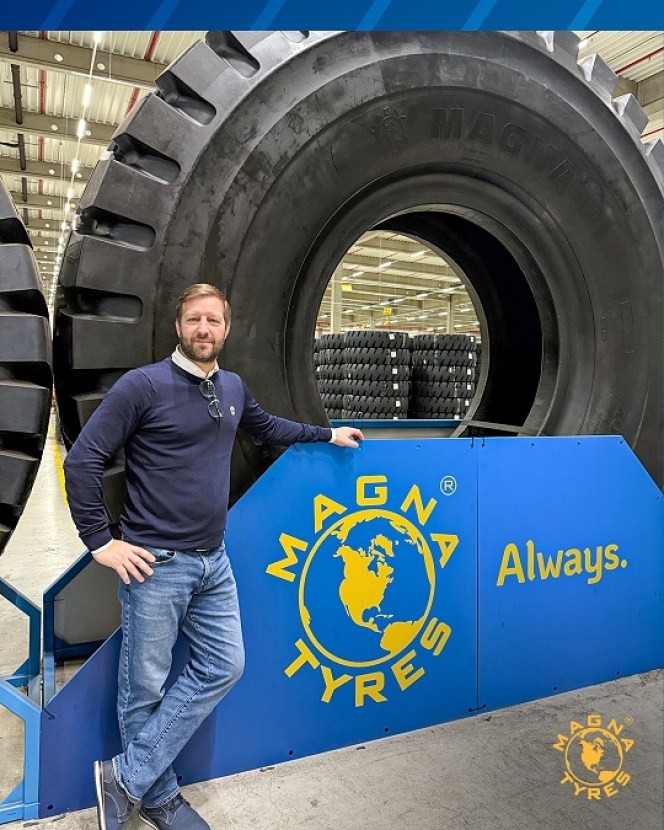
Magna Tyres Group has appointed Ruud Leijtens as the new Sales Manager for Scandinavia. In this position, he will dedicate his efforts to expanding the company's network across the Scandinavian region.
Leijtens will focus on building strong partnerships with customers and creating new opportunities for the brand. The company considers his experience and energy a valuable addition to the team and looks forward to strengthening its commercial activities in Scandinavia with him on board to achieve its strategic goals for the market.
- Indian Rubber Institute
- IRI
- IRI-CON'26'
- Apollo Tyres
- CEAT
- BKT
- MRF
- JK Tyre & Industries
- V K Misra
- Dr R Mukhopadhyay
- Vasantagesan
- Rejni Issac
- ITTAC
- Prof Dr Kinshuk Naskar
- IIT Kharagpur
- Prof Dr Sabu Thomas
- MG University
- CIRCL90
- Bekaert Industries
- Rathi Group India
- Epsilon Carbon
- Tata Chemicals
- Brisil Green Silica
- Arlanxeo India
IRI-CON’26: Setting the Agenda For A Sustainable Rubber Revolution
- By TT News
- January 12, 2026

The Indian Rubber Institute (IRI), a non-profit professional body focussing on the tyre and rubber industry, has officially announced its flagship biennial conference, ‘IRI-CON’26’. IRI Gujarat and Rajasthan Branch have jointly organised the event.
Scheduled to take place on 30th and 31st January 2026 at the Hotel Sayaji in Vadodara, Gujarat, the event serves as a critical junction for technocrats, researchers, and industry leaders to navigate the sector's rapidly evolving technological and sustainability priorities.
The choice of Vadodara as the host city underscores Gujarat’s status as a formidable powerhouse for elastomers and rubber manufacturing. The region serves as a strategic base for global and domestic tyre giants, including Apollo Tyres, CEAT, BKT, MRF and JK Tyre & Industries, while hosting a robust network of suppliers specialising in carbon black, silica, textiles and rubber chemicals.
IRI-CON' 26' is supported by Ravi Enterprises, Kobelco Industrial Machinery India, Panama Petrochem, Pukhraj Additives and Beakert Industries as Platinum sponsors. Rajsha Chemicals, Madhu Silica, Balkrishna Industries and Madura Industrial Textiles are the Gold sponsors. On the other hand, Singh Plasticisers and Resins, Raj Petro Specialties, Nynas Napthenics, OCCL, 20 Micros, Sampann Utpadan India, ISRPL, Polyplas Global, Aksharchem India, Rubber King Tyre and Northwest Group are Silver Sponsors.
Lanxess India, Witnmans Industries, Epsilon Holdings, Kuraray India, Rubamin, Tinna Rubber and Infrastructure, Chem-Trend Chemicals, Dawsun Exim Corp, JK Tyre & Industries, Galaxy Chem & Machiner, Gujarat Bondchem and Silox India are the Bronze sponsors.
Lastly, MLA Industries, FINORCHEM, Tata Chemicals, Reliance Industries and DCM Shriram Chemicals are the Supporter for the event.
Against this backdrop, the conference theme – ‘Unlocking the Potential of Sustainable Developments in Rubber and Allied Industries’ – reflects an urgent industry-wide commitment to resource efficiency, circular economy principles and responsible manufacturing.
High-Profile Inauguration and Strategic Vision
The conference will commence with a high-powered inaugural session dedicated to global trends and strategic updates. This session features a line-up of some of the most influential figures in the Indian rubber ecosystem. Dr Sujith Nair, Chairman, IRI Gujarat and VP R&D, CEAT, will deliver the welcome speech.
V K Misra, Chairman of IRI and representative of JK Tyres & Industries, will open the proceedings with a vision for the institute’s role in future-proofing the industry. He will be joined by Vasantagesan, IRS, Executive Director of the Rubber Board and Dr R Mukhopadhyay, who will provide a comprehensive overview of global sustainability trends.
Further technical leadership will be provided by Renji Issac, Chairman of ITTAC and representative of CEAT and P K Mohamed, Emeritus Chairman of IRI. The academic foundation of the event is bolstered by the presence of Prof. Dr Kinshuk Naskar from IIT Kharagpur – the institute's long-term partner for technical certification – and Prof. Dr Sabu Thomas of MG University, ensuring a seamless bridge between cutting-edge research and industrial application.
Innovations in Green Chemistry and Circularity
The event will also dive deep into technical breakthroughs that are reshaping the tyre value chain. A significant focus will be placed on ‘Green Tyres’ and the reduction of environmental footprints. Key presentations will feature Bekaert Industries discussing advanced cord solutions for weight reduction, and CEAT showcasing the CIRCL90, a sustainable passenger car tyre.
The shift toward a circular economy is a recurring theme throughout the technical sessions. Epsilon Carbon and Rathi Group India (Capital Carbon) will present on the integration of recovered carbon black (rCB) and the importance of ASTM standards in ensuring market momentum for recycled materials. Meanwhile, Brisil Green Silica and Tata Chemicals are set to discuss the revolutionary transition of producing sustainable silica from agricultural waste, a move that highlights the industry's move away from traditional, energy-intensive sourcing.
A Collaborative Ecosystem
The conference serves as a global stage for a diverse array of companies, including Arlanxeo India, which will present eco-friendly elastomer solutions and Finorchem, focusing on enhancing compound performance through phenolic resin-silica coupling. Other notable participants include LANXESS, TUV Rheinland and TTRC, covering everything from bio-based additives to water-based vulcanising cements and rigorous certification standards.
As regulatory pressures and environmental expectations continue to intensify, IRI-CON’26 stands as a timely and vital forum. By aligning manufacturers, R&D specialists, and academia, the event is positioned to chart a sustainable growth pathway for India’s tyre and rubber ecosystem, ensuring it remains competitive on the global stage while meeting the highest standards of environmental stewardship.
The event will also celebrate the next generation of industry talent with a Best Student Presentation Award Ceremony on the final day.
All-in-all the event is a must-attend for industry professionals, R&D specialists and academics in the tyre and rubber industry. To register click here







Comments (0)
ADD COMMENT